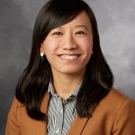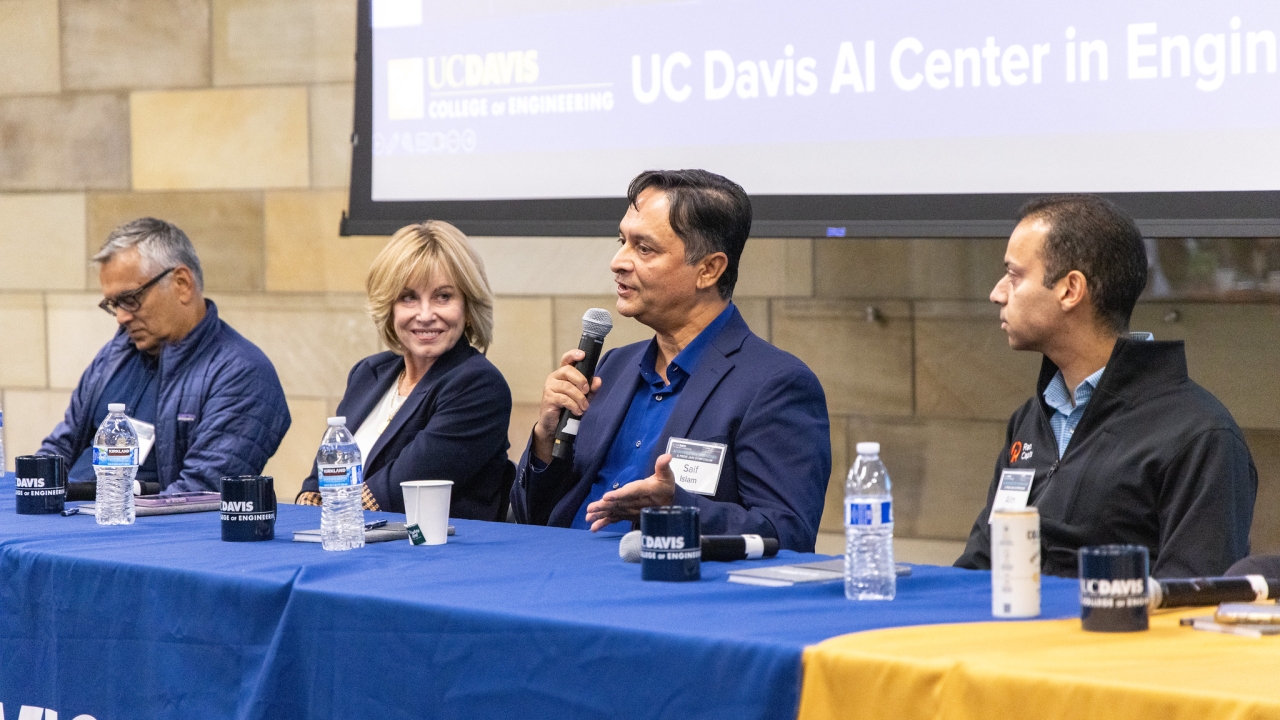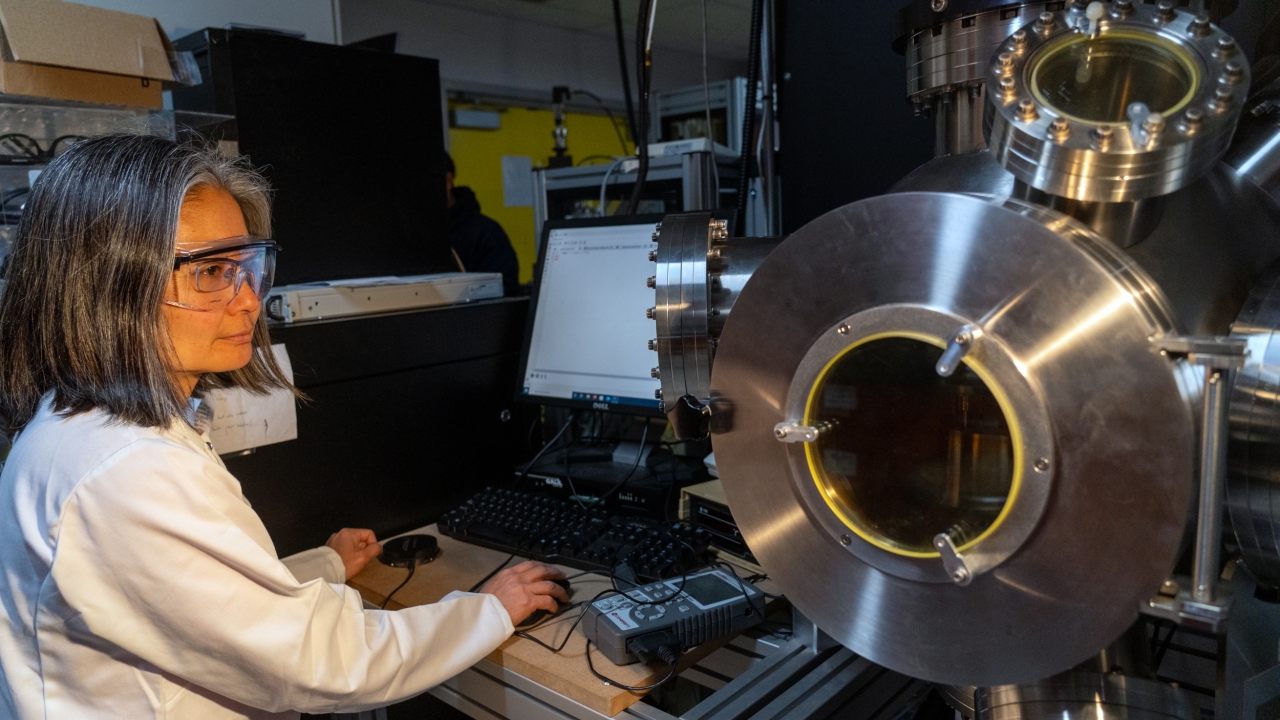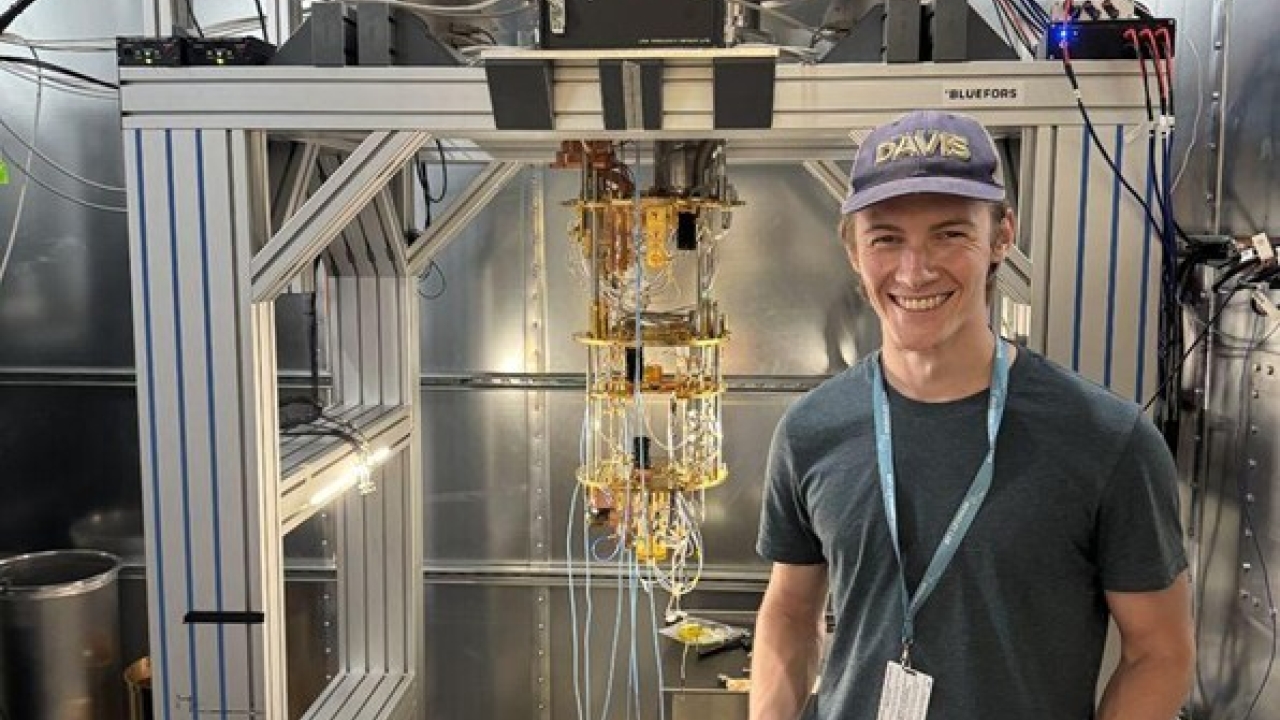Engineering Student Receives Chancellor’s Award for Research Excellence
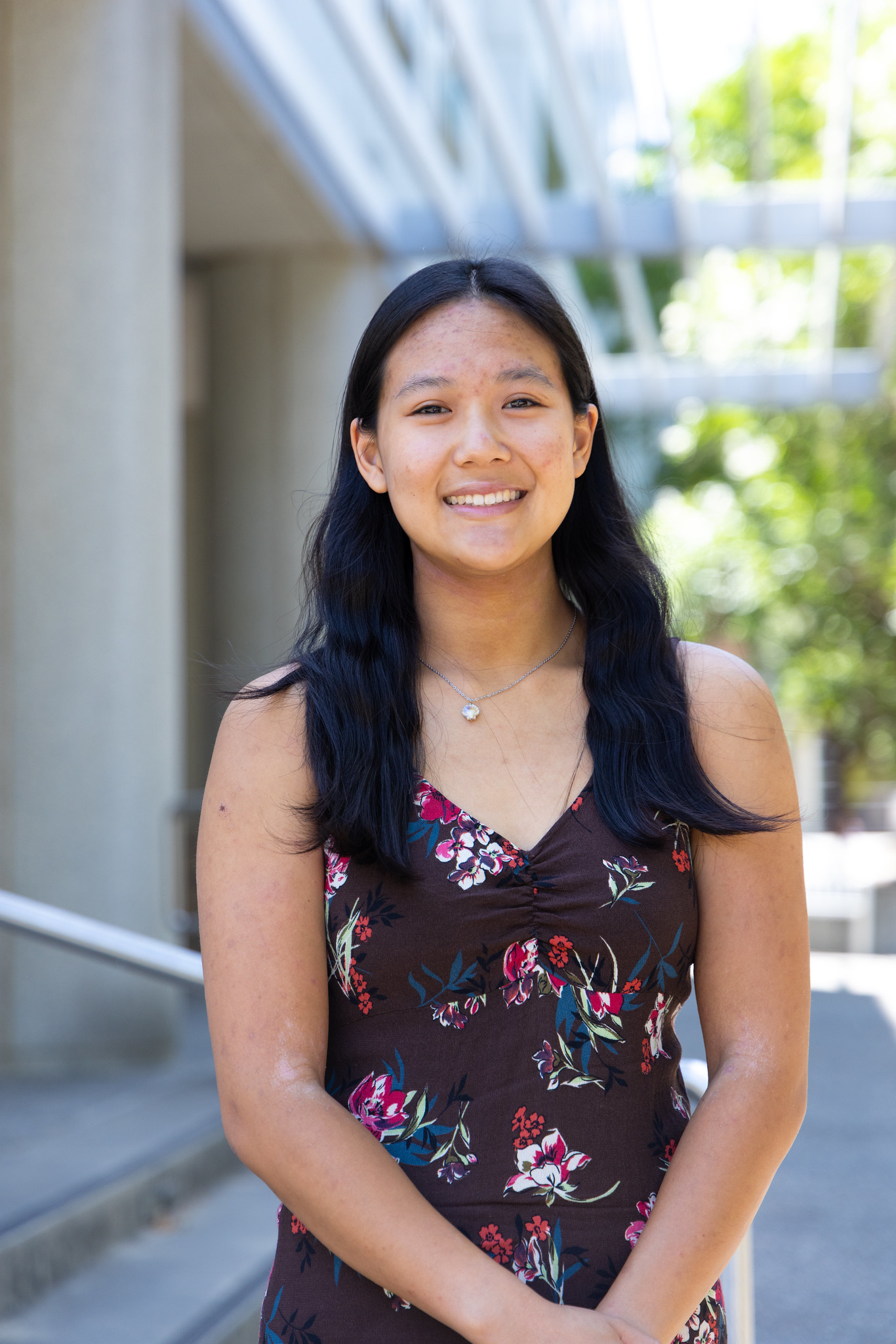
Biomedical engineering senior Claire Hsu has received a 2025 Chancellor’s Award for Excellence in Undergraduate Research for her innovative work on Alzheimer’s disease in Assistant Professor Audrey Fan’s lab at the University of California, Davis.
The annual award recognizes outstanding undergraduates for their research, scholarship or creative activity tied to any academic subject and performed while at UC Davis. This year, Hsu is one of three recipients of the Chancellor’s Award, and the sole representative from the College of Engineering.
“I was really motivated to study or do something related to Alzheimer's disease,” Hsu said, explaining that she had lost someone close to the disease. “I wanted to see what an engineering perspective was, because I was already doing a lot of advocacy work with the Alzheimer’s Association.”
As a sophomore, Hsu began a research project with Fan and neuroscience Ph.D. student Quimby Lee. She was drawn to Fan’s lab because of its focus on understanding the mechanisms behind brain function and disease, a growing body of knowledge that can help scientists and doctors find treatments for and detect conditions like Alzheimer’s disease earlier.
Hsu’s project uses magnetic resonance imaging, or MRI, to image and investigate biomarkers in the brain that may influence or indicate declines in memory and cognition and changes in behavior in older adults. She collaborated with the UC Davis Alzheimer’s Disease Research Center to identify 130 elderly participants to look at global white matter hyperintensities, or signs of brain damage. She also worked closely with Lee, who studies cerebrovascular biomarkers in children, to learn the basics of MRI imaging.
In a first-author paper currently under review, Hsu found a negative association between brain damage and cerebrovascular reactivity, an indicator of vascular function.
“Hsu's project uses non-invasive imaging to link cerebrovascular lesions to brain function — functional connectivity across long-range gray matter regions — in a new way,” Fan said. “This is important because her new imaging methods can, in the long run, inform clinical predictions of which older patients will experience functional decline.”
Fan said that the modeling described in the paper can also be used to monitor how diet and exercise can improve brain health. Yet, the quality of Hsu’s work extends beyond the medical innovation and her academic rigor.
“Beyond her research and technical prowess, Hsu thrives in a collaborative environment between engineers, neuroscientists and clinicians,” Fan said. “She brings a unique, humanizing and compassionate touch, informed by her volunteer experience with the National Alzheimer's Buddies association, to her imaging research on brain aging.”
For Hsu, the Chancellor’s Award is both a validation and a confirmation that she should continue with research that advances care for Alzheimer’s disease.
“The award is really exciting,” she said. “It encourages me to pursue a Ph.D., since it feels like a testament to the quality of work that I've been able to accomplish.”
Hsu plans to take the summer off to consider what’s next, be it graduate school or industry. The one for sure thing? She will follow the standard set by Assistant Professor Fan.
“She's really supportive and has helped show me what a good advisor and lab culture are. If I look into Ph.D. programs, I have a good benchmark.”

